This is a write-up that contextualises Pindora and focuses on its AI, AI agents and LUCIA.
Lets augment our intelligence.
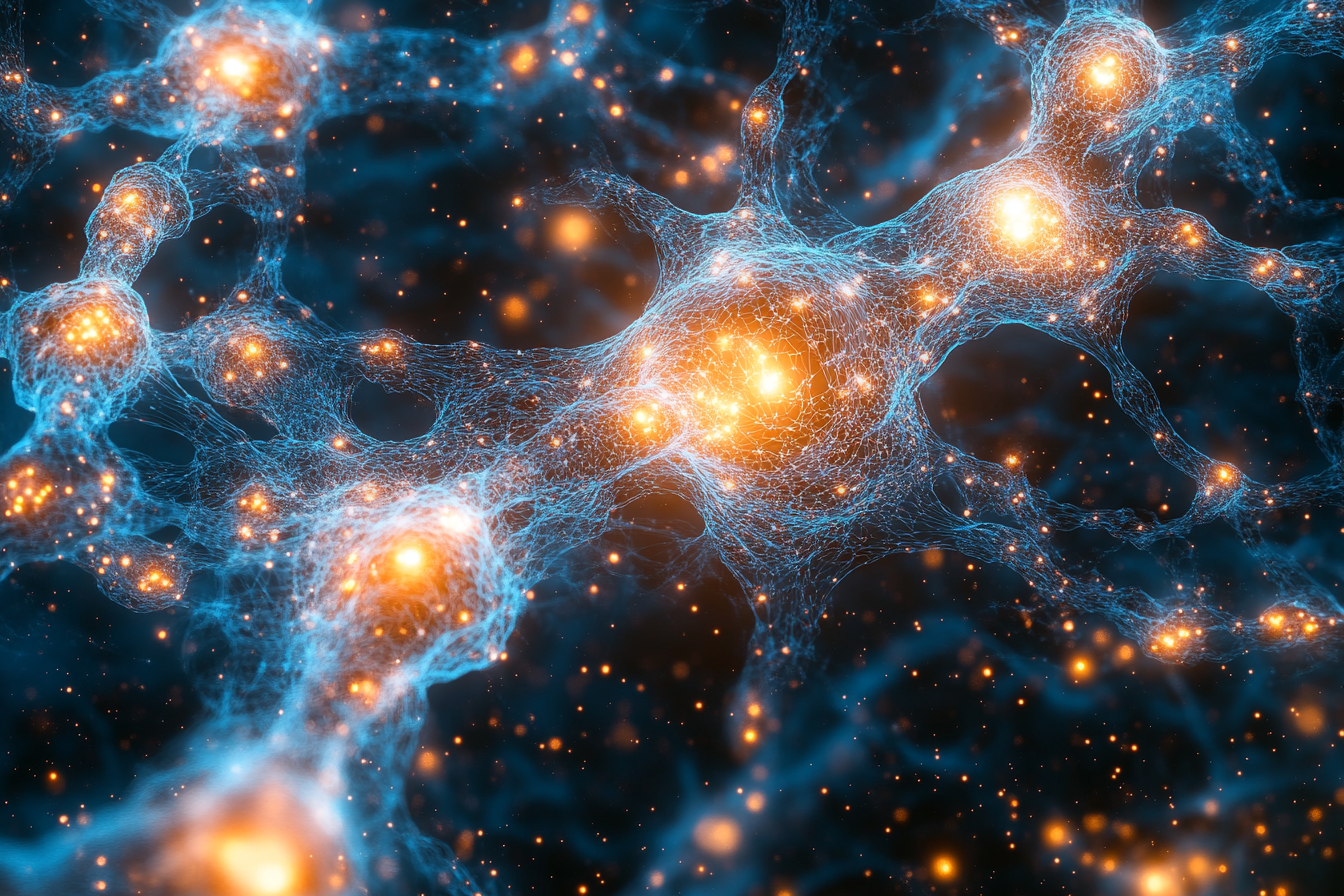
Once upon a time, a boy named Sam…
Regulatory capture is a strategy to ensure those that utilise it stay king of the hill of the sector they are in.
It is where a company/project/group of people get to government, enmesh and entwine themselves with politicians and regulators in order to influence positive regulation for themselves but rules that inhibit the growth of competitors and start-ups.
To the naïve Joe, this may seem like some tin-foil hat nonsense, but they do not know what is at stake and how powerful one can be if they succeed in this.
Sam Bankman-Fried (SBF) attempted this. He purported to be an effective altruist (EA) and EA goals tend to reside with the idea to capture as much capital as possible in order put it use that is most effective for the largest amount of people.
SBF utilised crypto in order to gain capital quickly. The fast, loose, grey-area world of crypto combined with the excuse effective altruism provided him, led SBF, his company and his connections into one biggest known fraud cases in history at the time.
FTX was taking over the world. Tom Brady and Steph Curry were in their adverts, even LARRY DAVID was in FTX commercials!
SBF took PR straight from Rockefeller’s propaganda playbook, he tried to frame himself as this wealthy genius who was going to help the disadvantaged. Policy makers were wooed by his ability to play videogames and give pitches at the same time – I think that is how he saw it all, a game.
As he charmed people with his weak act, he pushed for the Digital Commodities Consumer Protection Act (DCCPA), which so happened to benefit FTX.
SBF wanted to position FTX as “too big to fail” within a sector that was built on the decentralised ethos. The proposed rules would force defi protocols into partnerships with central custodies such as FTX and the cost to be compliant was vast.
Then in a massive fit of irony, FTX collapsed dramatically and lost $8 billion of customer funds. BlockFi, Voyager Digital, Celsius are just some examples of companies collapsing because of amphetamine-abuser SBF and countless of start-ups were dramatically impacted.
The details that came out about him and his gang’s antics were just gross.
To capture crypto would have made SBF and his psycho-sexual pyramid scheme incredibly powerful, that is why he was willing to risk it all. Not because he was EA and wanted to get mosquito nets for Africa, it was because he drank from the cup of insatiable power.
Therefore, if you can control the future of capital transfer, imagine if can control the reigns of AI.
OpenAI
Controlling AI is akin to acquiring the nuclear bomb. It is a tool for dominance.
The right model can sift through vast amounts of data, quickly, and solve complex problems in the time it takes me to make a cup of tea.
AI is mirroring human intelligence and putting it to a motherboards and the internet.
New ways to combat not just disease but the degradation aging brings. It can make lawyers redundant. Review code, provide mentoring, generate ideas, reduce overhead costs for businesses, make knowledge more accessible and so on.
And it is all a big unknown. We have walked seas and sailed continents but there is this new realm, the digital realm, that we are venture and carving out new horizons of the human imagination.
We do not know where we are going exactly but we seem to be getting their fast because AI learns quickly.
No surprise then Elon Musk turned his nose towards AI and co-founded OpenAI with Sam Altman as well as Greg Brockman, Ilya Sutskever, Wojciech Zaremba, and John Schulman.
One of the goals was to “Ensure broad, equitable distribution of AI's benefits.” OpenAI started out as a non-profit, open-source project to develop AGI. Musk originally backed OpenAl as a research organisation focused on Al safety.
The tech industry is full of people who were perhaps told once too often they were precocious as a child. As David Shapiro points out, “the tech industry… often fosters a ‘diva mentality’ where each department or individual believes they are the most crucial component. This inflated sense of importance, encouraged by Silicon Valley culture, can lead to internal conflicts and misaligned priorities.”
American Tasha McCauley has a rich education in robotics and AI, and Australian Helen Toner also works in fields dedicated to AI, she co-authored "The Malicious Use of Artificial Intelligence: Forecasting, Prevention, and Mitigation," which addresses potential risks posed by AI.
These two are Effective Altruists and were on the board of OpenAI.
But hold your horses, they weren’t repeating SBF’s tactics. Quite the opposite. They were fired because they effectively hindered Sam Altman and the next gen board.
From a piece in the Economist, multiple senior leaders had privately shared grave concerns with the board, saying they believed that Mr Altman cultivated “a toxic culture of lying” and engaged in “behaviour [that] can be characterised as psychological abuse”.
That sort of behaviour also aligns with some of Altman’s past behaviour – look up what he did to his sister when they were younger.
Alas, Altman survived the drama and his rivals left. Furthermore, OpenAI has been haemorrhaging talent since to rivals. However, that is not much of a concern for Altman as OpenAI moves into a new era of closed-source, for-profit. The new board show the world domination plans.
Toner and McCauley were against the regulatory capture from OpenAI as it would stifle startups and innovation – sound familiar?
To top that off, the Department of Homeland Security announced the establishment of the Artificial Intelligence Safety and Security Board.
The goal is to provide recommendations for "safe and secure development and deployment of AI" throughout the US's critical infrastructures.
The board's 22 members include Altman and chief executives of large tech companies, including Nvidia CEO Jensen Huang and Alphabet CEO Sundar Pichai.
Marc Andreesen said, “We had meetings in DC in May [2024]… they said AI is a technology that the government is going to completely control. They told us to not fund AI start-ups. AI is going to be 2 or 3 big companies working closely with the government and, I am paraphrasing, we are going to wrap them in a government cocoon, we are going to protect them from competition, we are going to control them, we are going to dictate what they do.”
The latest board of OpenAI contains
Dr. Sue Desmond-Hellmann:
Has been on the board of Facebook. Is on the board of Pfizer. She is on the board of Resilience - Resilience has the CEO of InQTel on board.
Nicole Seligman –
She received national attention in the United States for her representation of Lieutenant Colonel Oliver North during the Iran–Contra hearings, and of President Bill Clinton during his impeachment trial.
Ex-Chief Executive Officer of the Bill & Melinda Gates Foundation from 2014 to 2020.
Seligman is a former executive vice president and general counsel of Sony Corporation and former president of Sony Corporation of America. Worked at Paramount.
Fidji Simo –
CEO of Instacart. Was the VP of Facebook and Head of Facebook App.
Adam D’Angelo –
Founder of Quora and highschool friend of Mark Zuckerberg.
Retired U.S. Army General Paul M. Nakasone –
Has served as Director of the National Security Agency (NSA) and as the Commander of U.S. Cyber Command.
He is a founding director of Vanderbilt University's Institute of National Defense and Global Security in May 2024, where he would explore technology's role in national security, including AI.
Larry Summers –
Pops up in key places in crypto.
Former head of World BankClinton Treasurer.
Heavily involved in repealing Glass-Stegall.
Former President of Havard as Zuck and Winklevoss twins came through.
Linked with Epstein.
I find it highly suspicious whenever Larry Summers is around something that is meant to be ethical.
This OpenAI board has representatives of Bill Gates, banks, US government and the Clintons.
If you want to read on some of the manipulative behaviour of the Clintons, read Christopher Hitchen’s “No One Left To Lie To”. That is only the tip of the iceberg.
The stakes for AI are high. This is akin to the nuclear arms race. OpenAI want to control the internet.
[[ The stakes are so high drastic action is taken to preserve the course of OpenAI. Suchir Balaji, a whistleblower from OpenAI, claimed that the company had breached copyright laws. He has since been murdered.
\\May Suchir rest in peace. ]]
Remixing priorities
2008. The Banks were “too big to fail”.
Yet something else occurred in that fateful year. Satoshi’s Bitcoin whitepaper made the rounds and one by one, it seized the imagination of those in the cypher-sphere, on message boards, those on the fringe.
Once shunned as a ponzi scheme, here in 2024, Bitcoin is now too big to ignore.
The revolution it has incurred is the fact that it is a decentralised ledger, one that records the transaction of the currency bitcoin on its network. No need for a central bank, the only thing is a user’s way is the access to the internet and an understanding on how to use it.
Since these early rogue days when phones were still dumb, the crypto industry has been this petri-dish environment. Lots of experiments, trials, scams, fraud has taken place. A lot can happen in a short amount of time with crypto, a couple of years can feel like a decade.
Yet, there is this irony that chuckles me. At conferences, one can witness the sponsors of AWS, Google Cloud and Apple.
The proprietary software crowd easing into the space of decentralisation.
Google has a massive reach. If you have a smart home, Google is there, as long as it is connected to Google, they are able to siphon data from camera, microphones, fitness devices, TV, fridge, energy.
Capturing this sort of data is ingenious form of surveillance. It acts as a service but it can learn more about you. Then sell “you” to the highest bidder or not even that, to anyone who is willing to pay, regardless of their intent.
June – December 2009: Chinese Hackers Breach Google Servers
September 2014 - Nearly 5 Million Gmail Passwords Leaked Online
September 2015 - BrainTest Malware Infects Up to 1 Million Android Devices
November 2016 - Gooligan Malware Compromises 1 Million Android Devices
March 2018 - Google+ Bug Exposes 500,000 Users’ Data
July 2018 - Wall Street Journal Exposes Gmail Snooping
August 2018 - Google Tracking Location Data on 2 Billion Users, Sometimes Without Permission
September 2019 - Google Received $170 Million Fine for Child Data Privacy Breaches
December 2018 - Google+ Bug Exposes 52.5 Million Users’ Data
April 2020 - Google Faces $5 Billion Lawsuit for Tracking “Private” Browsing
July 2020 - Google Accused of Misleading Millions of Users About Privacy
July of 2021, European regulators in Luxembourg fined Amazon Europe $877m for data breaches and failing to comply with general data processing principles under GDPR.
Instagram has received a $403m penalty, WhatsApp was charged $255m last year for violating GDPR rules.
Time and again these massive corporations demonstrate they cannot be trusted yet they are everywhere in day-to-day life.
Now, what if this can go one sensitive step further. What if you had an AI agent from Google that had access to everything about you in order to help personalise your routine and assist you in all sorts of matters from professional to social and so on?
It sounds help to have this but what about all that data?
Would you look at that, Google are releasing AI Agents - https://www.youtube.com/watch?v=Fs0t6SdODd8
Under Project Astra and Project Mariner, Google are making a universal AI assistant that can complete tasks on your behalf. By using these platform’s created by private/public partnerships, you help map the civil and personal world, you are allowing them into worlds where CCTV cannot go.
AI AGENTS
AI agents will proliferate and it will be near on impossible to avoid these in the coming future. They have a great benefit to them.
With the internet, we have a store for a vast amount of data. The improvement of AI gives internet a functioning mind and pairing that with blockchain gives it memory and accountability. We are now entering an era of the Internet of Intelligence backed by the Internet of Agreements.
I will give a little further insight into AI agents.
It can be considered we are in the third generation of AI agents. To begin with, there are the monolithic models. These offer generic responses and do not go beyond basic training.
The Second Gen are compound AI systems, which can utilise a range of tools such as those to retrieve and process data. You can provide a query to the AI, which the AI formats the data to answer the query in a clear, friendly message. This is great as it helps with problem-solving.
The Third Gen is where things get extra spicy. They can analyse problems. Break tasks into steps.Thinking through solutions step-by-step.Leverage external tools.Invoke other AI agents.Adapt their processes and memorise feedback, as they learn and adapt.
A new financial paradigm is upon it. It is a paradigm where AI agents can work 24/7/365 at a consistency and speed that transcends human physical capabilities. They can hyperfocus on a task for an extended amount of time and they can sift and scrape data on a scale that would take a human a lifetime.
Their ability to do highly orchestrated tasks, streamline processes and enhance decision making possibility is a huge advantage to those that use it.
Blockchain is vital in this paradigm as it is the agreement between the physical world and the digital realm.
Allow me to take heavily from Balaji Srinivasan, known for many things but he did teach Stats and Neural Networks at Stanford in the 2000s, he puts it across well how AI and Crypto go hand-in-hand. They balance one another out.
AI can generate and produce a lot of material, it creates this digital abundance particularly with knowledge-services, and it creates mass uncertainty in the public web. Crypto can help authenticate as it tracks provenance, crypto helps digital scarcity by applying economics, tokenomics and transfer rails furthermore, cryptography cannot be faked. We should see cryptographic cameras in the future where a photo is taken and it appears on-chain in order to verify it.
Where AI kills web 1, it further installs the need for a cryptographic web – Web3.
And there is this meeting of rivers with AI and Crypto. AI came from “Towers”. Crypto came from “Squares”. Towers in this case are centralised research labs, Google, OpenAI, known researchers with prestige and so on. Crypto has roots in the fringes of the internet, message boards of idealists and experiments with low-prestige.
Delph Digital put it in these words:
… the production and control of AI models are tracking to be almost entirely controlled by ‘the tower’ - big tech and governments.
This is arguably an even more dystopian state of affairs than government-controlled money. As it allows them to not only control the most important economic resource, but also control the narrative by censoring and manipulating information, cutting certain “undesirable” people off from the system entirely, using people’s private AI interactions against them, or simply using AI to maximize ad revenue
There are many smart people working to create “the square” - a decentralised network with the goal of producing a fully neutral, censorship-resistant model accessible to all. So just as Bitcoin and crypto provide money/financial rails that sit outside the system, crypto x AI would provide intelligence that sits outside the system.
A user can provide their intent to an AI agent or agents and this has a solution/output that can accelerate progress in almost any domain.
Therefore, the temptation to use an AI agent sourced from a centralised source will be too large to resist. I do not blame people for using the convenience of centralised sources, after all, a busy person being offered a service that will smooth their application towards a wide range of tasks, of course they will be seduced by the charms of Big Data products.
However, we can harness the benefits of AI without the vulnerabilities of turning in every facet of our lives to private/public projects.
Pindora / Nillion
LUCIA.
Lucia is an AI agent from Pindora.
Pindora is an early project on Nillion.
Nillion is the future of privacy on the internet.
Lucia.
Lucia is an AI agent from Pindora.
Pindora is an early project on Nillion.
Nillion is the future of privacy on the internet.
I will explain Lucia, an exciting AI agent, after I give a brief background of Nillion and Pindora.
Nillion should be public in 2025, back in 2022 I wrote a piece on the project. Nillion had a programme to help stimulate early development and amongst these early projects is Pindora.
How does a squirrel protect its nuts whilst it hibernates? It buries them in various locations.
One thing you can do with a valuable seed phrase is have the words scattered in different locations. One row in locker in Atlanta, another in the basement of the Vatican, perhaps stash the other words in the International Space Station and so on.
Perfect. If anyone finds one of those rows, good luck finding the rest.
Now, that same principle of shredding the information and scattering it can be applied to computers and better yet, you can verify the information without it being seen. Nillion allows for secure data storage and processing, facilitating applications that require confidentiality. It can execute operations on encrypted data without decrypting it, essentially, building a blind computer.
In short, Nillion helps privacy enhancing technology (PETs) and this is not just applicable to Web3 projects, this is great for Web2 world as well.
If you are interested in a deep dive into Nillion, I have written this piece - https://mirror.xyz/pcybe.eth/0RhlvFQnWAV4Qud-tGHe8oUZ8mfN2yRURkncGOt-Dpg
Being a part of the genesis core of Nillion, naturally a goal of Pindora is also privacy. This goal and necessity of privacy in the digital age is first being focused on AI. Where Nillion provides a decentralised storage and data computation layer, Pindora can build products on top of this such as an AI agent that has all the benefits of a centralised corporate AI agent but will all the strengths of decentralisation and ensuring privacy of your most intimate data.
Pindora is one of the teams in Web3 building the “squares” that Delphi Digital speak of.
This is talented, international, professional team
CEO Andy Pensold and CTO Josef Feiertag worked together at TAGnology (TAG). Headquarted in Austria, this is a pioneering company that deals with contactless technologies, such as supply chain tracking, secure access systems and tap-to-pay cards.
TAGs products and services utilise RFID, NFC, and Auto-ID technologies and the company has been working on over-the-air wireless power solutions since 2021.
Josef is a seasoned IT architect and his valuable experience includes logistics processes, enterprise IT and e-commerce platforms.
In the past, Andy has helped tech start-up companies for 20 years. A history of activity in Web2, building software platforms for companies such as BMW and Siemens.
He moved into Web3 after fully leaving TAG in 2022. With his vast experience in business and tech, he consults, has headed research teams for vVv fund, and set up Fusion 7 fund with 6 other co-founders.
To help with AI, it is particularly useful to have an experienced AI expert. David Heller has been brought into the fold and his data science and AI background is invaluable. He was a lead data scientist at Microsoft, which requires great acumen and creativity to remould, shape and provide algorithms to a landscape forever in flux. He has also worked for Ford and Orderly Health.
Co-founder Joseph Akhras brings a background in science to the table, having a Med Lab science degree and went on to work with Life Labs where he was a Senior Medical Laboratory Technologist-Molecular Microbiology.
Farzan and Fardin Naiemi both graduated Inholland University and co-founded Phone Essentials V.O.F. Both have pivoted into the Web3 space full time, involved with pre-market research and marketing with various partners before establishing Pindora.
Sasha Sadri is the CMO. He has had experience with the Consulate of Belgium, bootstrapping start-ups and having strategic vision for Web3 projects. A relentless and wise figure in the space, he has passed on his experience of content creation to many others in the space. He continues his endeavours with Pindora.
A product the team of Pindora are rolling out is Lucia.
Lucia
Building AI Agents is a new frontier and the majority of the populace cannot imagine it, yet, this tech will all too soon be taken for granted.
Lucia is a hyper-personalised assistant.
She stores your data in secure fashion, away from the towers and in the safety of the square. It can then organise the data, learn patterns, adapt and provide insights for you. Just like using Chat GPT you can ask for help, for example, on a list of thoughtful gifts but the extra that Lucia can do is come up with more personalised gift ideas based on based on the time and chats you have shared.
This can be particularly effective in your profession. Let’s say you are a trader, Lucia monitors your chats in your Telegram, the Discord servers you are a part of, the wallets you track as well as your own wallets, and it can keep you up to date. Lucia can highlight something that you may have not noticed that could be a diamond.
Having Lucia can help organise a Zoom call by understanding your internet provider thus your bandwidth, understand the capacity you can host, then invite the people to that Zoom.
If you are planning a holiday, Lucia can guide your process, finding the most suitable flight booking, hotel preference and options for travel in quick time.
It can help with all manner of routines and jobs, perhaps you are looking for a job, Lucia can help find opportunities in the sector you are looking for, streamlining the process and present tailored options for you.
And if you provide Lucia with accurate details and plenty of information, Lucia can provide beneficial use and really help you strategize , short-term and long-term, be a digital twin, an assistant in this world.
What is important to understand. You are the only person who has access to your data as Lucia is across decentralised GPUs with open-sourced LLM models. Companies are wise to be wary of their employees using, say, ChatGPT or Claude. An employee may be tempted to put up a contract proposal for review in Chat, however, that information goes to centralised server and the data belongs to that server.
With Lucia, the data is yours and only accessed by you.
Lucia will be an app on your phone and desktop.
As Lucia progresses, it can go beyond simply being a personal assistant, it can have further application for businesses, opening up the B2B market is massive, after all, that is where a lot of financial life and activity occurs.
Crypto’s environment is the perfect habitat for AI agents. Lucia is a true digital native. Crypto has provided a co-ordination layer, a trustlessness place where AI can interact with other AI, with markets, with people and conduct business.
The team will need time to help develop a layer on top to enable Lucia, who deals with your personal data, to engage with public business. Therefore, if you are reading this before Lucia’s release, do not expect this immediately.
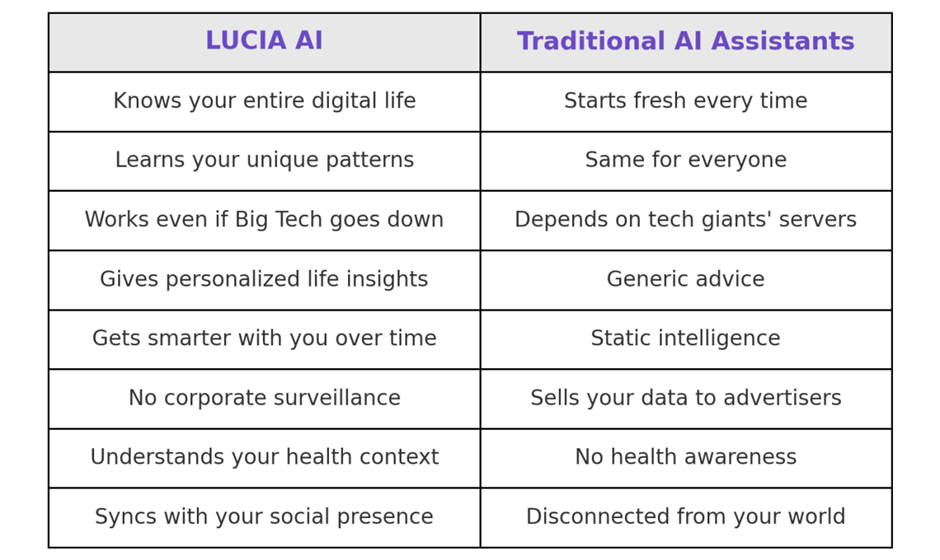
And so, what about the token?
GPU provides will be rewarded in $LUCIA as they help bring compute power to the network. GPU providers must provide collateral to ensure stable and reliable compute power, safeguarding the ecosystem.
Token holders shape the ecosystem by voting on proposals, addressing challenges, and suggesting improvements, ensuring decentralised and community-driven evolution.
Users can stake their tokens and show their commitment to Pindora's vision and earn rewards, fostering long-term engagement.
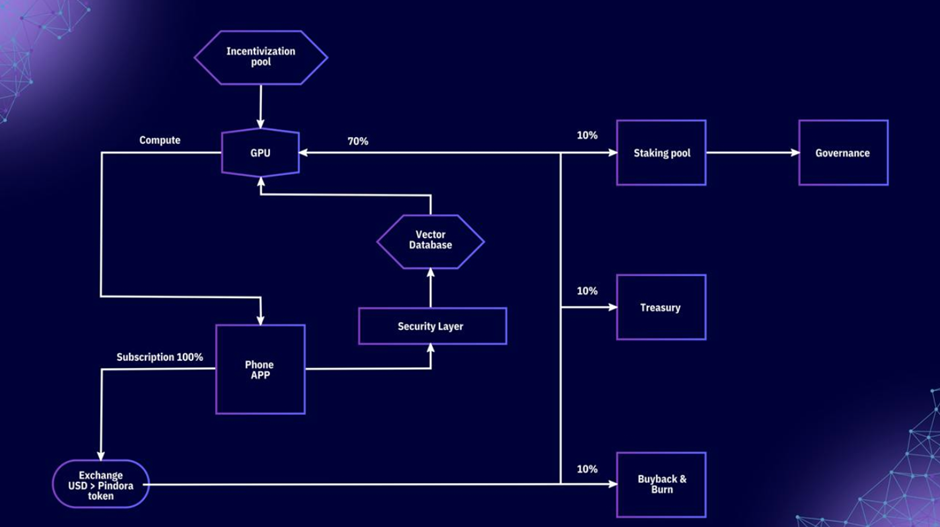
What else is in the box?
Pindora is not just providing an AI assistant. Pindora are decentralising infrastructure, with the growth of the DePIN (Decentralised Physical Infrastructure Network) movement, we will witness this sprawl of tech DePIN apps.
Pindora aim to bring a General Purpose SDK that provides an interface, a unified access to the DePIN space. This will integrate the APIs from the DePIN ecosystem, making it much more convenient to navigate and interact. This greatly enables adoption and utility to a broader market.
And backing this up is Pindora Cloud. A decentralised cloud network has data across nodes, this is great for resiliency of the cloud, if one or more nodes are offline, no problem, there is still the rest of the network. The more nodes in the network, the stronger the security of it.
A current hurdle for small to medium businesses is starting up a cloud, the cost can be too much. In this case, the businesses turn towards the Big Tech services, which are also expensive. Decentralised cloud is an alternative that suits the small-to-mid businesses:
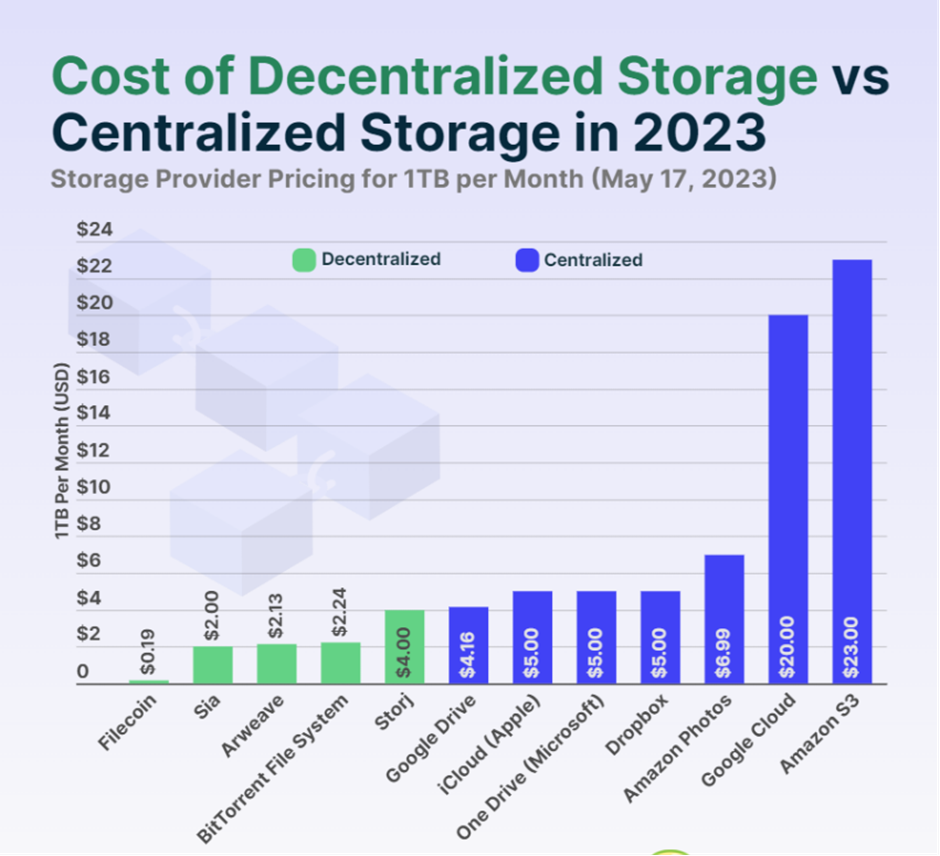
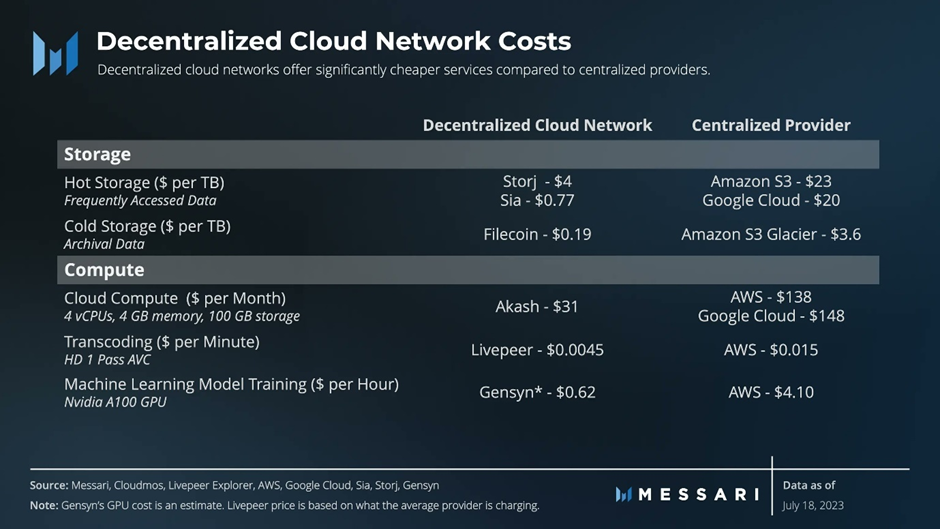
Not only is it more secure, provides better privacy, it is also kinder on the expenditure. Furthermore, businesses deal in fiat, even though Pindora is Web3 based, it will open its service and streamline the payment and migration processes in fiat.
Therefore, Pindora helping B2B with decentralised cloud, it opens up a stable revenue stream, something that is important as Web3 matures.
With the rise of Edge tech, a decentralised network will be essential. A quick comparison, submarine tech needs to be able to function even if a part of the sub is damaged, therefore the systems had a distributed network.
We are facing a paradigm shift in cloud compute because the landscape is different. We can do more with the tech available, it is more intricate and there is a market to onboard smaller businesses. Operations are automated, the process to orchestrate them are streamlined and a decentralised network provides security.
By providing decentralised cloud and a decentralised AI assistant, this is a backbone to the future of decentralising infrastructure as a whole. Pindora helps make DePIN interoperable and extends its functionality.
With the professional backgrounds of the team, they have the connections to engage and incorporate businesses across Europe.
Future.
The liquidity coming into AI is massive. SoftBank is investing $100bn into US projects building AI infrastructure. Eric Schmidt mentioned over the next couple of years there is $300 million in AI investment. Valuations are crazy and those that provide actual utility and application will survive.
There are people that are intimidated by AI and rightfully so. We are putting the output of humanity and its imagination onto an electrical network that mimics it; therefore, it can operate at a capacity beyond the individual. AI will be like how ourselves with our favourite pet.
Not everyone is an AI scientist and most people have their lives to lead, too busy to know there are safe alternatives.
There are teams that respond to their privilege to be able to take action. Pindora is one team that is providing a decentralised alternative to the centralised data harvesting services.
Terence McKenna has a quote:
Arts task is to save the soul of mankind. Anything less is a dithering while Rome burns.If the artist, who are self-selected to being able to journey into the other, if the artist cannot find the way, then the way cannot be found.
We used to paint on cave walls to tell stories or to map the local area. We have now this black mirror and we can “paint” all sorts, the human imagination is where the art comes from and code is a form of art. Take Bitcoin, centralised governments have monopolised violence but there is nothing they can do to the code of Bitcoin.
Centralised data centres have opened up storage capabilities but they are not the end goal. Decentralising storage and providing privacy to the data not only makes it cheaper but it helps speed up progress of humanity.
The epoch of the Holocene is over and we move further into the Anthropocene. Does that word incur positive or negative images?
The discovery of fire helped keep us warm, helped us be what truly separate us from the rest of life – we became cooks.
The breakthroughs of AI and data sharing push forth innovation and invention. It conquers the diseases of within, and the dis-ease of the outward journey into space and new frontiers.
We can adapt much quicker, accelerate and excel at unprecedented speed.
If we want to keep cooking, to keep building, to ponder over thought, to pen it in poetry, to capture the light on film, we must use our wits to propel us forward rather than to stifle us.
Therefore, when Lucia is in your hands, what will you do?
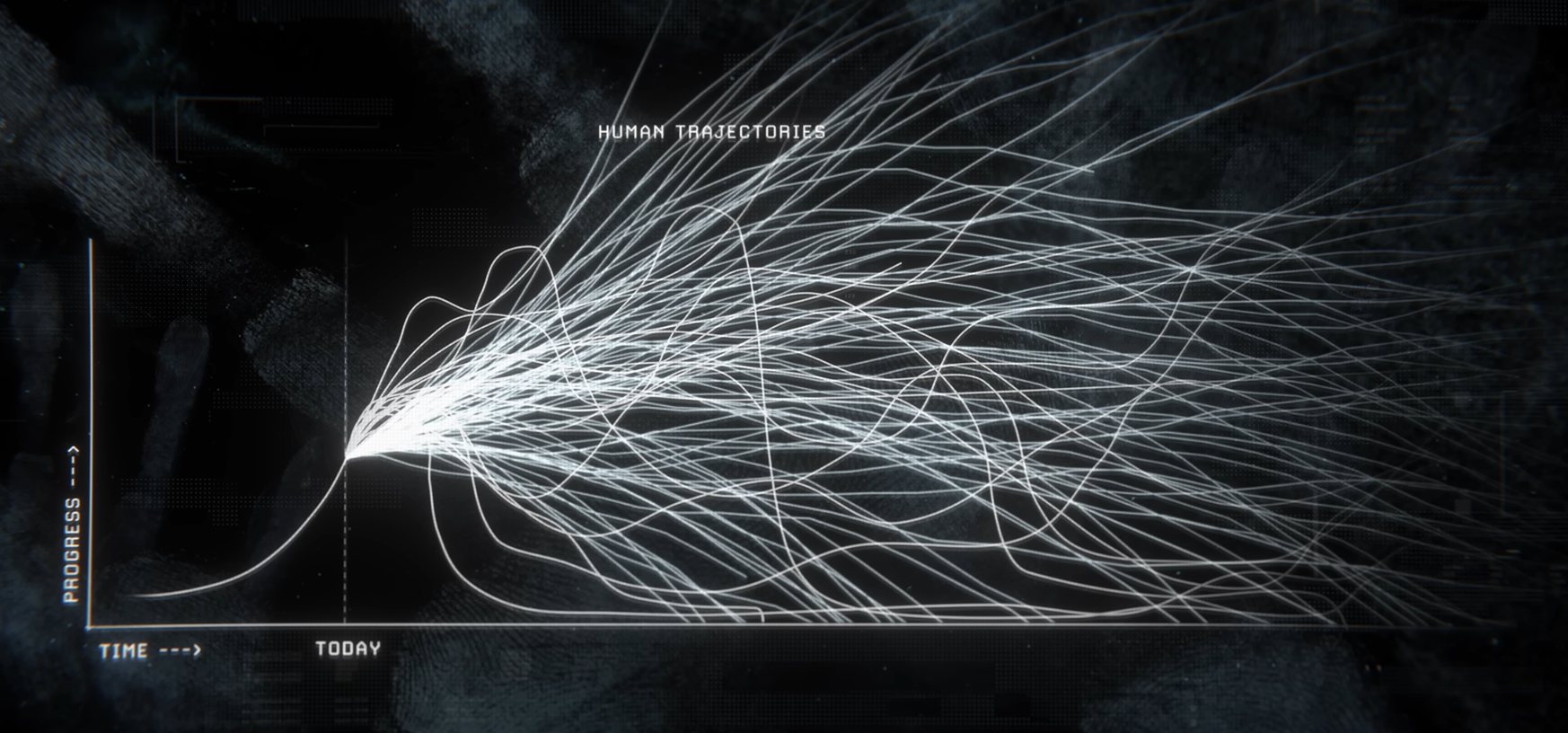


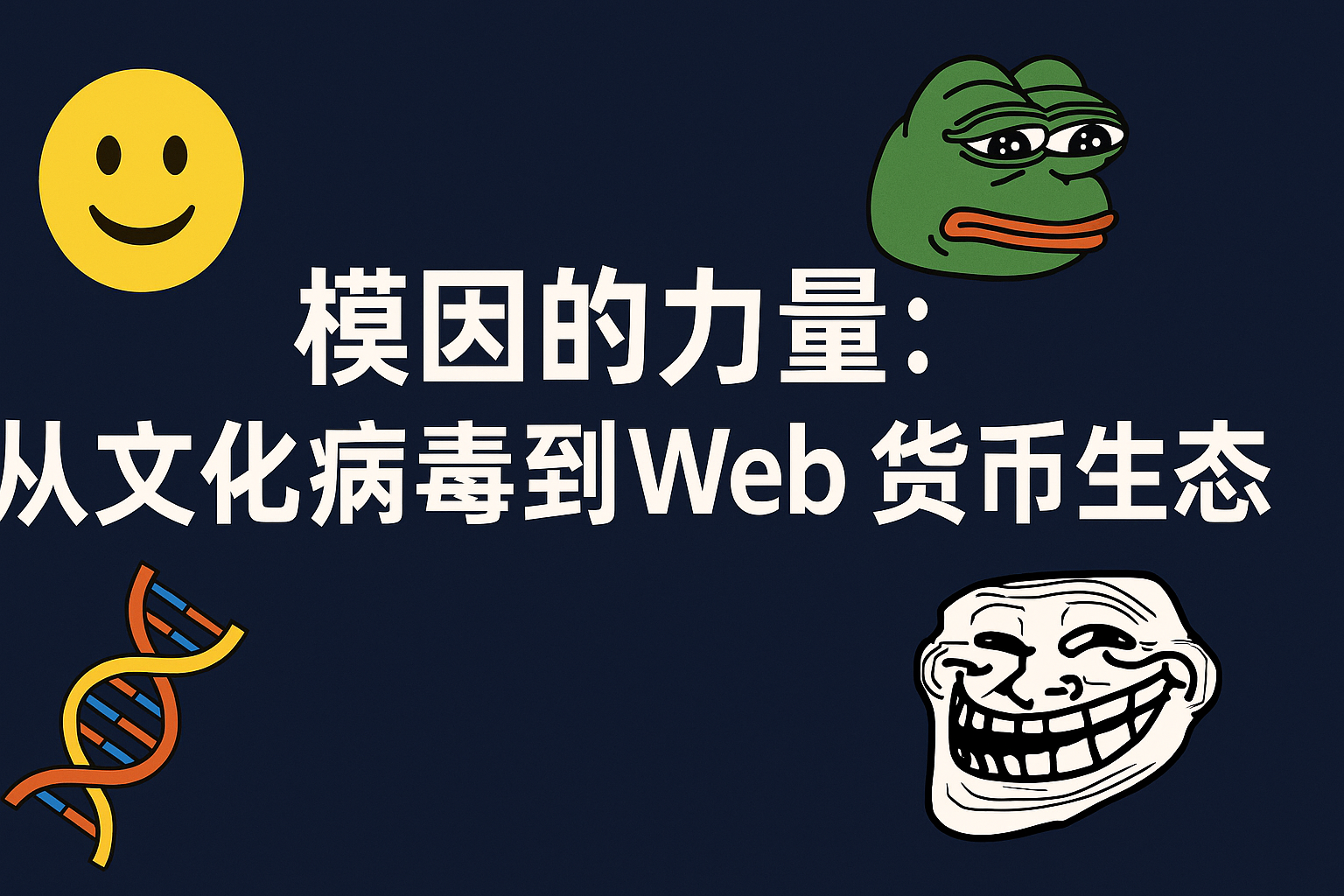

评论 (0)